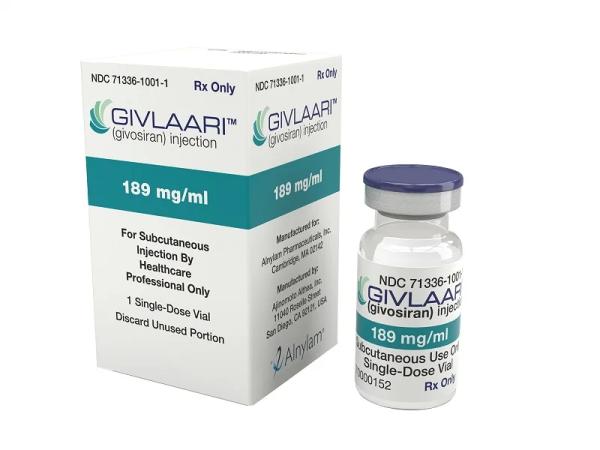Givlaari and Alcohol/Food Interactions
There is 1 alcohol/food/lifestyle interaction with Givlaari (givosiran).
Caffeine Givosiran
Moderate Drug Interaction
MONITOR: Coadministration with givosiran may increase the plasma concentrations and the risk of adverse effects of drugs that are substrates of CYP450 1A2 and/or CYP450 2D6. The proposed mechanism is decreased clearance due to givosiran-mediated inhibition of CYP450 1A2 and 2D6 isoenzymes. Concomitant administration of a single subcutaneous dose of givosiran (2.5 mg/kg) increased the systemic exposure (AUC) and peak plasma concentration (Cmax) of caffeine (sensitive CYP450 1A2 substrate) by 3.1-fold and 1.3-fold, respectively, and dextromethorphan (sensitive CYP450 2D6 substrate) by 2.4-fold and 2.0-fold, respectively.
MANAGEMENT: Caution and monitoring are recommended when givosiran is given with drugs that are substrates of CYP450 1A2 and/or 2D6. Concomitant use should generally be avoided with CYP450 1A2 or 2D6 substrates that have a narrow therapeutic range where minimal concentration changes may lead to serious or life-threatening toxicities. If concomitant use is unavoidable, the dosage of the CYP450 1A2 or 2D6 substrate should be reduced according to approved product labeling or clinical response and tolerance. Dosage adjustments as well as clinical and laboratory monitoring should be considered whenever givosiran is added to or withdrawn from therapy with these drugs.
References (1)
- (2019) "Product Information. Givlaari (givosiran)." Alnylam Pharmaceuticals
Switch to consumer interaction data
Givlaari drug interactions
There are 242 drug interactions with Givlaari (givosiran).
Givlaari disease interactions
There is 1 disease interaction with Givlaari (givosiran) which include:
More about Givlaari (givosiran)
- Givlaari consumer information
- Check interactions
- Compare alternatives
- Pricing & coupons
- Drug images
- Side effects
- Dosage information
- During pregnancy
- FDA approval history
- Drug class: miscellaneous metabolic agents
- En español
Related treatment guides
Drug Interaction Classification
| Highly clinically significant. Avoid combinations; the risk of the interaction outweighs the benefit. | |
| Moderately clinically significant. Usually avoid combinations; use it only under special circumstances. | |
| Minimally clinically significant. Minimize risk; assess risk and consider an alternative drug, take steps to circumvent the interaction risk and/or institute a monitoring plan. | |
| No interaction information available. |
See also:
Further information
Always consult your healthcare provider to ensure the information displayed on this page applies to your personal circumstances.


